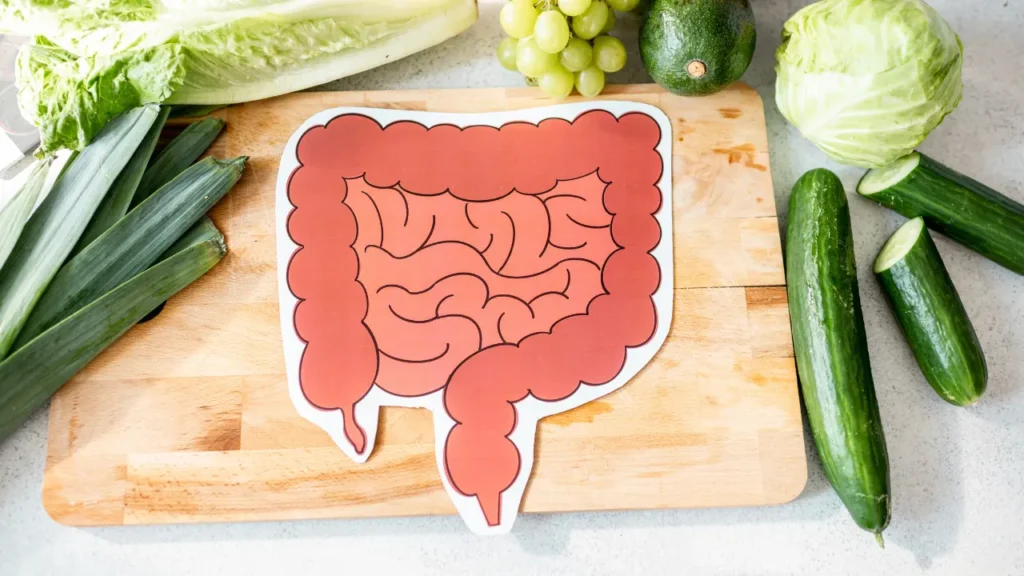Angostura is a nutritional supplement that has grown in popularity in recent years. This surge in popularity is likely due to its possible health advantages. It is an extract with a bitter taste that is made from the Angostura tree’s bark. This is a tree that is a South American native. Alkaloids, flavonoids, and terpenes are only a few of the bioactive substances found in the extract, which are thought to be the sources of its therapeutic effects. The nature of Angostura, its health advantages, the best dosage, its adverse effects, possible drug interactions, and appropriate usage will all be covered in this article.
You May Also Like:
CBD for Concentration: 3 Epic Benefits that Boost Your Focus
CBD for Concentration: The Productivity Hack for Energy and Focus
ANGOSTURA: Benefits, Dosage, Side Effects, Drug Interactions, And Other Important Information is an original (NootropicsPlanet) article.
Nature of Angostura
The bark of the South American Angostura tree (Galipea officinalis) is used to make the bitter-tasting extract known as Angostura. Alkaloids, flavonoids, and terpenes are only a few of the bioactive substances found in the extract. Alcoholic beverages sometimes contain Angostura as a flavoring, especially in Old Fashioned and Manhattan cocktails. However, it is also a dietary supplement, often in the form of a liquid or a capsule.
Health Benefits of Angostura
The numerous, possible health advantages of Angostura are being researched by specialists. Some things that are known about it are that Angostura has the ability to promote healthy digestion, lessen inflammation, and lessen pain, which are some of the most promising health advantages.
Aid Digestion: The traditional usage of Angostura is as a digestive aid. Angostura extract enhanced the synthesis of digestive enzymes in rats, according to a study published in the Journal of Ethnopharmacology. This finding may aid people’s digestion as well. Angostura extract was discovered to decrease gastric acid production in rats in a different study that was published in the Journal of Agricultural and Food Chemistry. This finding may help treat the symptoms of acid reflux.
Reduce Inflammation: Several of the chemicals in Angostura have anti-inflammatory activities. For instance, one study discovered that Angostura has a substance called galipine, which has potent anti-inflammatory benefits. This study was published in the Journal of Natural Products. Angostura extract was found to lower pro-inflammatory cytokine production in mice in a different study that was published in the Journal of Ethnopharmacology.
Reduce Pain: Angostura may also have analgesic qualities, making it effective for reducing pain. Angostura extract was shown to have potential as a pain reliever in humans after a study in the Journal of Ethnopharmacology revealed that it decreased pain responses in rats.

Chemistry of Angostura
Alkaloids, flavonoids, and terpenes are only a some of the bioactive substances found in a complex composition in Angostura. Angostura’s different medicinal qualities are caused by these constituents.
Galipine, a substance with strong anti-inflammatory qualities, is one of the most significant substances included in Angostura. It inhibits the synthesis of pro-inflammatory cytokines, which are essential for the progression of inflammation.
Cuspareine, an alkaloid with possible analgesic properties, is another significant ingredient in Angostura. According to research, cuspareine interacts with the brain’s opioid receptors to lessen pain.
Another bioactive ingredient in Angostura called galipeine has antioxidant and anti-tumor effects. This substance suppresses the development of cancer cells in vitro, indicating that it may have application in the treatment of cancer.
Finally, the Angostura alkaloid angosturine may have antiviral properties. This substance prevents the replication of a number of viruses, including the influenza virus and the herpes simplex virus.
Physiological Mechanisms of Action
It is still unclear exactly how Angostura affects the body and brain physiologically. But some research has shed light on its possible modes of action.
Inflammation reduction is one of Angostura’s effects that has been the subject of the most research. Angostura includes galipine, a substance with strong anti-inflammatory activity, as was previously mentioned. Galipine inhibits the synthesis of pro-inflammatory cytokines, which are essential for the progression of inflammation. Angostura may aid in reducing inflammation throughout the body by lowering the production of these cytokines.
The ability of Angostura to reduce pain is another possible mode of action. Angostura includes cuspareine, an alkaloid that may have analgesic benefits, as was previously noted. According to research, cuspareine interacts with the brain’s opioid receptors to lessen pain. Angostura may assist with pain relief throughout the body by interacting with these receptors.
Finally, Angostura may be helpful for digestion. As was already established, Angostura has long been employed as a digestive aid. Angostura extract has been shown in recent studies to boost the synthesis of digestive enzymes in rats, which may be a predictor of potential benefits to human digestion as well. Angostura extract decreases stomach acid production in rats, which may help relieve the symptoms of acid reflux in people.
Overall, research is still being done to determine the precise physiological mechanism of Angostura’s impact on the body and brain.

Optimal Dosage of Angostura
Angostura’s ideal dosage has not yet been determined; thus, it is important for you to speak with a healthcare provider before using any new dietary supplements. A common dose of Angostura extract, according to some sources, is 1-2 mL per day, which can be diluted with water or another beverage.
Side Effects of Angostura
While Angostura is typically thought to be safe for most people, some people may experience negative effects. Angostura’s most frequent adverse reactions include nausea, vomiting, and diarrhea. Additionally, certain people should completely avoid using Angostura because they may be allergic to it.
Potential Substance Interactions with Angostura
Angostura can interact with some prescription drugs and other dietary supplements, so talk to a doctor before using it. Angostura, for instance, may interact with blood thinners like warfarin and should be avoided by people taking these drugs. Angostura may also interact with other dietary supplements, such as valerian root or kava kava, that have sedative properties, raising the possibility of drowsiness or sedation.

Responsible Uses of Angostura
Use Angostura as a dietary supplement properly. The following advice can help you use Angostura safely:
• Before using Angostura, talk to a doctor, especially if you take any drugs or have any health issues that need to be addressed.
• Pay close attention to the dosage recommendations. Angostura overdose can raise the possibility of negative side effects.
• Recognize possible adverse reactions, such as nausea, vomiting, and diarrhea. If you experience any of these symptoms, stop using the medication and seek medical advice.
• Only buy Angostura from trustworthy producers and dealers.
• Keep Angostura in a cold, dry place, away from sunshine and heat.
ANGOSTURA:
Conclusion
If you are a fan of mocktails and cocktails, then you may already be familiar with Angostura within that context. Angostura bitters are a popular ingredient with a distinctive taste and aroma. Readers may be unaware that Angostura is a tree with medicinal properties as well. The article detailed how its components correspond to particular actions that could prove useful to your health, depending on your needs. In conjunction with your own research and consultation with a trusted health professional, use this article to explore how Angostura may be a supplement you’ll want to add to your nutritional regimen.

References:
- “GC-Recomposition-Olfactometry (GC-R) and multivariate study of three terpenoid compounds in the aroma profile of Angostura bitters.” Retrieved from: https://www.nature.com/articles/s41598-019-44064-y
- “IN VITRO PRODUCTION OF LEISHMANICIDAL ALKALOID 2-PHENYL-QUINOLINE BY ANGOSTURA LONGIFLORA KRAUSE A.” Retrieved from: http://www.scielo.org.bo/scielo.php?pid=S0250-54602008000100003&script=sci_arttext&tlng=en
- “Rapid synthesis of the tetrahydroquinoline alkaloids: angustureine, cuspareine and galipinine.” Retrieved from: https://www.sciencedirect.com/science/article/abs/pii/S0040402008011927
Important Note: The information contained in this article is for general informational purposes only, and should not be construed as health or medical advice, nor is it intended to diagnose, prevent, treat, or cure any disease or health condition. Before embarking on any diet, fitness regimen, or program of nutritional supplementation, it is advisable to consult your healthcare professional in order to determine its safety and probable efficacy in terms of your individual state of health.
Regarding Nutritional Supplements Or Other Non-Prescription Health Products: If any nutritional supplements or other non-prescription health products are mentioned in the foregoing article, any claims or statements made about them have not been evaluated by the U.S. Food and Drug Administration, and such nutritional supplements or other health products are not intended to diagnose, treat, cure, or prevent any disease.


